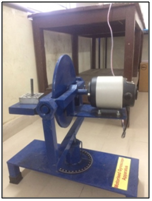The department has the following laboratories to meet the requirements of Mechanical Engineering. All the laboratories in the department are well equipped with the latest software’s and technologies so as to provide required infrastructures to carry in-house projects for final year students as well as R&D activities.
RESEARCH LABORATORIES
- Engineering Workshop-I&II
- Mechanics of Solids Lab
- Production Technology Lab
- Metallurgy & Material Science lab
- CADD & MAT Lab
- CAD/CAM Lab
- Fluid Mechanics & Hydraulic Machines Lab
- Machine Tools Lab
- Engineering Metrology Lab
- Heat Transfer Lab
- Thermal Engineering Lab
- Fuels and Lubricants Lab
- Kinematics and Dynamics Lab
Engineering Workshop-I&II
Mechanical Engineering Workshop is a place where students acquire knowledge on the operation of various processes involved in manufacturing and production. The Workshop Practice course makes the students competent in handling practical work in engineering environment. It consists of different trades in which the students get trained for gaining confidence on basic engineering practices in I B. Tech itself.
FITTING SHOP
Fitting shop is a place where fitting or assembling work is carried out. Some repair / maintenance and Die punch work is also carried out in Fitting shop.
CARPENTRY SHOP
The wood is obtained from the trees. In Woodwork shop students are trained to work on wooden jobs by using various hand tools such as claw hammer, chisels, mortise chisels, mallet, hand saw, backsaws, coping saw, block plane, jack plane, saw horse, workbench, router table, utility knife, tin snips, nail puller, speed square and drilling machine.
BLACHSMITHY PRACTICE
The Mechanical working of the metal is the shaping of the metal in either cold state or hot state. This does not include machining, grinding or casting. But in Mechanical working of the metal, the metal is shaped by “pressure” actually, in which forging, bending, twisting, drawing etc are done bring it to its final shape. In these processes some metals are shaped in both cold and hot worked.
FOUNDRY PRACTICE
Foundry is one of the manufacturing process by which a desired shape of metal is obtained by heating up to its molten state (liquid state), and pouring into mould cavity. After some time metal is allowed to cool and solidify. The solidified piece of metal is known as casting.
TINSMITHY
Many engineering and house articles such as boxes, cans, funnels, ducts etc. are made from a flat sheet of metal. The process being known as tinsmithy. For this the development of the article is first drawn on the sheet metal, then cut and folded, to form the required shape of the article. Allowance should be given in the drawing stage for folding and bending. This allowance depends upon the radius of the bend and thickness of the sheet metal.
MACHINE SHOP
Machine shop is a place in which metal parts are cut to the required size and put together to form mechanical units or machines. The machines so made are to be used directly or indirectly in the production of necessities and luxuries of civilization. Machine shop is the base of all mechanical production
WELDING SHOP
It is the process of permanent fastening where two metals are fused at the temperature of 3200°C (when metals are melted). The most common type is arc welding in which students are well trained.


Mechanics of Solids Lab
The objective is to learn the fundamental concepts of stress, strain, and deformation of solids with applications to bars, beams, and columns. Detailed study of engineering properties of materials is also of interest. Fundamentals of applying equilibrium, compatibility, and force deformation relationships to structural elements are emphasized. The students are introduced to advanced concepts of flexibility and stiffness method of structural analysis. The course builds on the fundamental concepts of engineering mechanics course.
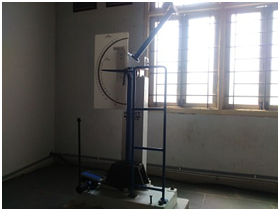
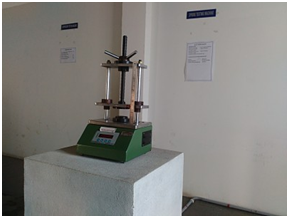
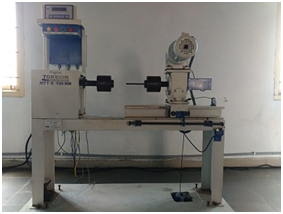
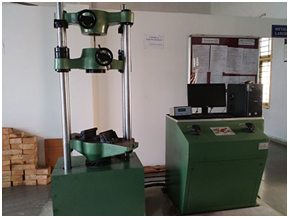
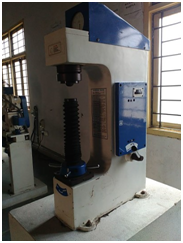
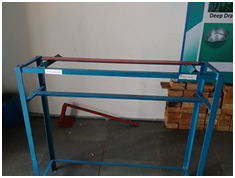
Production Technology Lab
The main objective of this lab to make the students to be acquainted with design and manufacture of simple patterns, Sand testing, Arc welding, gas welding and resistance welding equipment for the fabrication of welded joints and students are exposed to manufacture the plastic components such as bottle with cap using injection molding and blow molding equipment’s
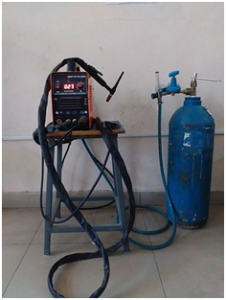
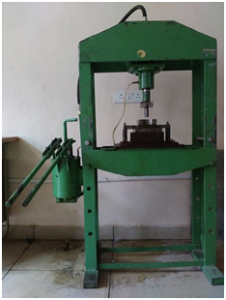
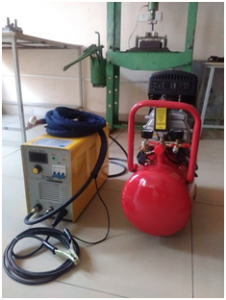
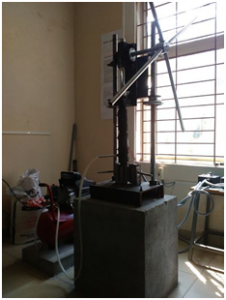
Metallurgy & Material Science lab
The purpose of this course is to make the students learn the concepts of Metallurgy and Material Science role in all manufacturing processes which convert raw materials into useful products adapted to human needs. This lab is focuses on the analysis of the microstructures of various metals and alloys including ferrous and non ferrous further relates to the mechanical property evaluation. In addition this lab provides basic knowledge of the phase’s formation which related to various heat treatment processes.
The Primary focus of the Metallurgy and Material science program is to provide undergraduates with a fundamental knowledge based associated materials properties, and their selection and application. Upon graduation, students would have acquired and developed the necessary background and skills for successful careers in the materials-related industries. Furthermore, after completing the program, the student should be well prepared for management positions in industry or continued education toward a graduate degree.

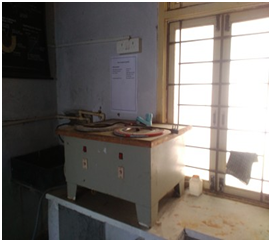

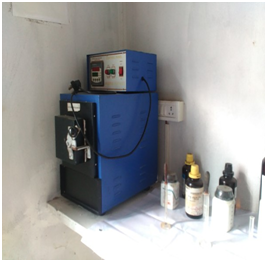
CADD & MAT Lab
To acquaint the student with some of the terminology in this very new field and relate it to the basic engineering process .To provide an introduction to the basic analytical fundamentals that are used to create and manipulate geometric models in a computer program. To introduce the student to full-scale CAD software system designed for geometric modeling of engineering components and systems( Attention will be directed at both drafting and full 3-D modeling systems).To provide experience in using the CAD tools to develop a simple project of reasonable complexity. To provide a brief survey of methods for integrating these tools into a comprehensive design system that incorporates advanced data base management concepts
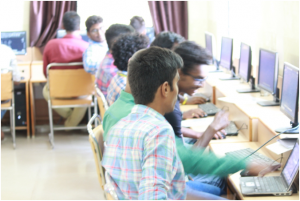
CAD/CAM Lab
Computer Aided Drafting is a process of preparing a drawing of an object on the screen of a computer. There are various types of drawings in different fields of engineering and sciences. The use of CAD process provides enhanced graphics capabilities which allows any designer to • Conceptualize his ideas • Modify the design very easily • Perform animation • Make design calculations.
- Increases the productivity of the designer
- Improves the quality of the design
- Create data base for manufacturing: In the process of creating the documentation for these products etc
Computer-aided manufacturing is the use of computer-based software tools that assist engineers and machinists in manufacturing or prototyping product components.
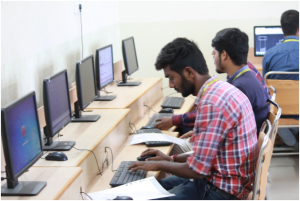
Fluid Mechanics & Hydraulic Machines Lab
This course will provide practical knowledge in verification of principles of fluid flow and imparts knowledge in measuring pressure, discharge and velocity of fluid flow major and minor Losses. Energy conversion principles, analysis and understanding of hydraulic turbines and pumps will be discussed. Application of these concepts for these machines will be demonstrated. Performance analysis will be carried out using characteristics curves.
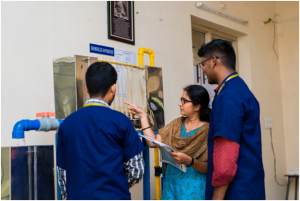
Machine Tools Lab
This lab is equipped with various Machinery such as Lathe, Planar, Drilling, Milling, Grinding etc. These are used to convert the raw material in to finished products by removing material from raw material work pieces through performing operations such as Turning, Facing, Chamfering, Drilling, Surface finishing etc,.
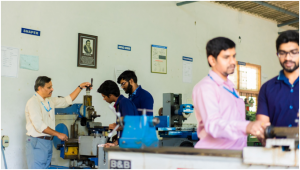
Engineering Metrology Lab
This lab is equipped with various instruments that are used to measure physical attributes of machine components like circularity, angularity, parallelism, surface finish etc.
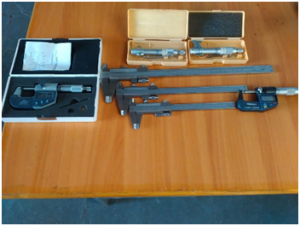
Heat Transfer Lab
Heat Transfer laboratory is well equipped with state of the art experimental apparatus. The lab provides fundamental and industrial knowledge about modes of heat transfer, like conduction, convection and radiation, and their application. Heat Transfer Lab consists of some of the following equipments.
Pin Fin Apparatus: This setup is designed to study the heat transfer in a pin fin.
Emissivity measurement apparatus: The experimental set up designed in such a way that under steady state conditions the heat dissipated by conduction and convection in the same for the two plates.
Heat transfer in natural convection: To determine average heat transfer coefficient for a vertical tube losing heat by natural convection
Critical heat flux measurement apparatus: This experimental set up is designed to study the pool boiling phenomenon up to critical heat flux point.

Thermal Engineering Lab
The lab is equipped with state of the art experimental setups of internal combustion engines, air compressor and also the working models of Boilers used in the thermal power plants. Students will be given training to understand the basic working principles of engines and also to carry out experiments to measure various performance parameters such as Brake power, Efficiency, Torque, mass of fuel etc., to understand the design of an IC engine.
The machines and equipment used to determine experimental data include cut models of 4stroke diesel engine, 2stroke petrol engine, 4stroke and two stroke petrol engines with required specifications, Multi cylinder SI engine, Single cylinder Diesel engine for performance and speed test which is suitable to tests on variable compression ratios.
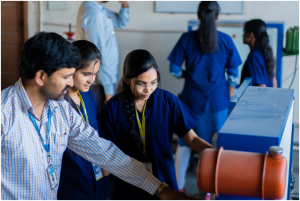
Fuels and Lubricants Lab
In Fuels and Lubricants Lab, different fuel and lubricants testing equipments are available. From this, students can measure flash point, fire point, percentage of carbon produced on combustion of fuel and calorific value of solids, liquids and gasses fuels etc. of any fuel. Along with this students are able to measure the viscosity and grease’s consistency of lubricants.
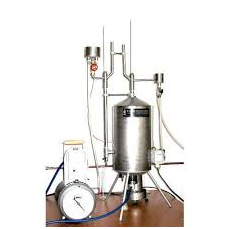
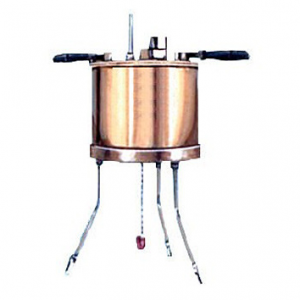
Kinematics and Dynamics Lab
JNTIH introduced this lab in the academic year 2017-18, the main objective of the lab is to understand the kinematics and dynamics of mechanical elements Such as linkages, gears, cams and learn to design such elements to accomplish desired motions or tasks.

